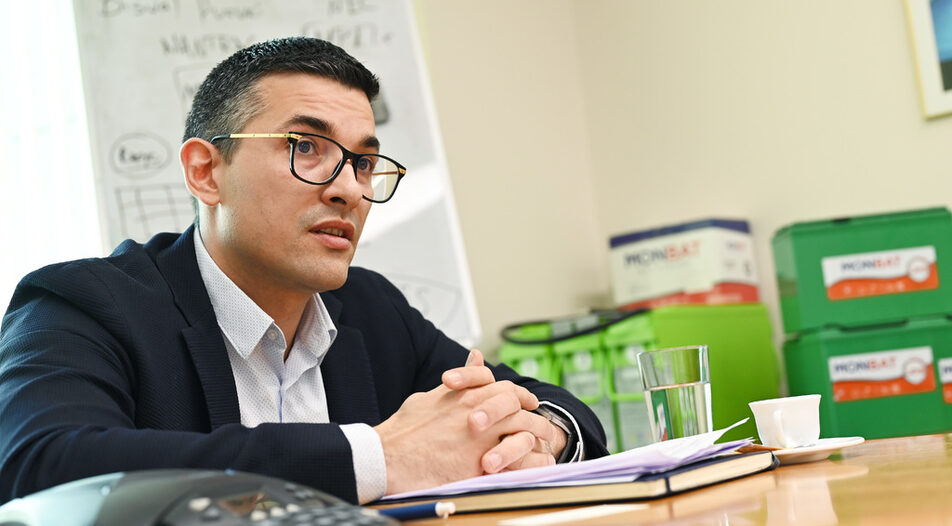The need for energy storage systems to service Bulgaria's electricity transmission network is expected to jump more than 15-fold by 2030, to some 140 gigawatt hours. Therefore all technologies for storage should be utilized to achieve the projected scale, Viktor Spiriev, CEO of Bulgaria's Monbat, told the Capital Weekly in an interview. The group is the fourth largest lead-acid battery manufacturer in Europe and leader in the Balkans, as well as a major recycler of lead-containing materials.
The advantage of batteries
In Spiriev's words, the technologies are not antagonistic: they are suitable for different scales and should complement each other. For instance, the capacity of hydro power plants should be above 100 megawatts for a project to be economically viable and that of compressed air plants - above 10 gigawatts. These solutions require a specific terrain to be implemented. The advantage of batteries is their flexibility and their ability to serve both small and large projects, he points out.
The most widely used battery technologies at present are those employing lead-acid batteries and different lithium-ion battery chemistries. The advantage of lithium-ion batteries is that they have a longer useful life and higher power density per unit of weight, i.e. they are lighter than lead-acid batteries. A disadvantage is that the initial investment is still big and that they require special handling and exploitation conditions.
The major disadvantage, according to Spiriev, is that there is not yet an established technology for their recycling. Therefore lead-acid batteries seem the logical solution at this stage: the initial investment is smaller and they are safer to use. Future improvements in the technology, such as extending their useful life, reducing their weight and increasing their power density, could help the wider use of lead-acid batteries. They are also more environment-friendly and support the circular economy as they are nearly 100% recyclable, Spiriev says.
A synthesis of the two technologies, i.e. hybrid systems combining lead-acid and lithium-ion batteries, is the reasonable option, Spiriev believes. What gives Monbat an advantage in this area is that the group is owner of Germany-based EAS Batteries, which has expertise in the production of lithium-ion batteries.
Planning a plant of the future
The company is also working on improving the existing technological processes with bipolar batteries. A few years ago it acquired licensing rights to technologies of US-based Advanced Battery Concepts and is planning to build a plant in Bulgaria. The prototype testing has yielded very good results, giving the company confidence it will be able to launch serial production soon. It will be initially organized at the production facilities of the US partner. Meanwhile Monbat is considering two potential locations for its future plant, one of them being the site of its battery factory in the city of Dobrich.
The advantage of bipolar batteries is that they have higher power density than traditional starter batteries. Their useful life is also extended and the loss of capacity with time is smaller than with conventional industrial batteries. They are also cheaper because of the lower lead content in them, Spiriev explains.
Europe's aim to achieve carbon neutrality by 2030 seems hardly feasible, Spiriev believes. In his words, every company and every consumer should meet the challenges and choose their working practices. For Monbat, this includes improving the production processes and reducing electricity consumption. The company is also considering installing its own renewable energy capacities. But the industry cannot completely abandon fossil resources - at least they are indispensable for the production of storage batteries, solar panels and wind turbines, he points out.
The need for energy storage systems to service Bulgaria's electricity transmission network is expected to jump more than 15-fold by 2030, to some 140 gigawatt hours. Therefore all technologies for storage should be utilized to achieve the projected scale, Viktor Spiriev, CEO of Bulgaria's Monbat, told the Capital Weekly in an interview. The group is the fourth largest lead-acid battery manufacturer in Europe and leader in the Balkans, as well as a major recycler of lead-containing materials.












